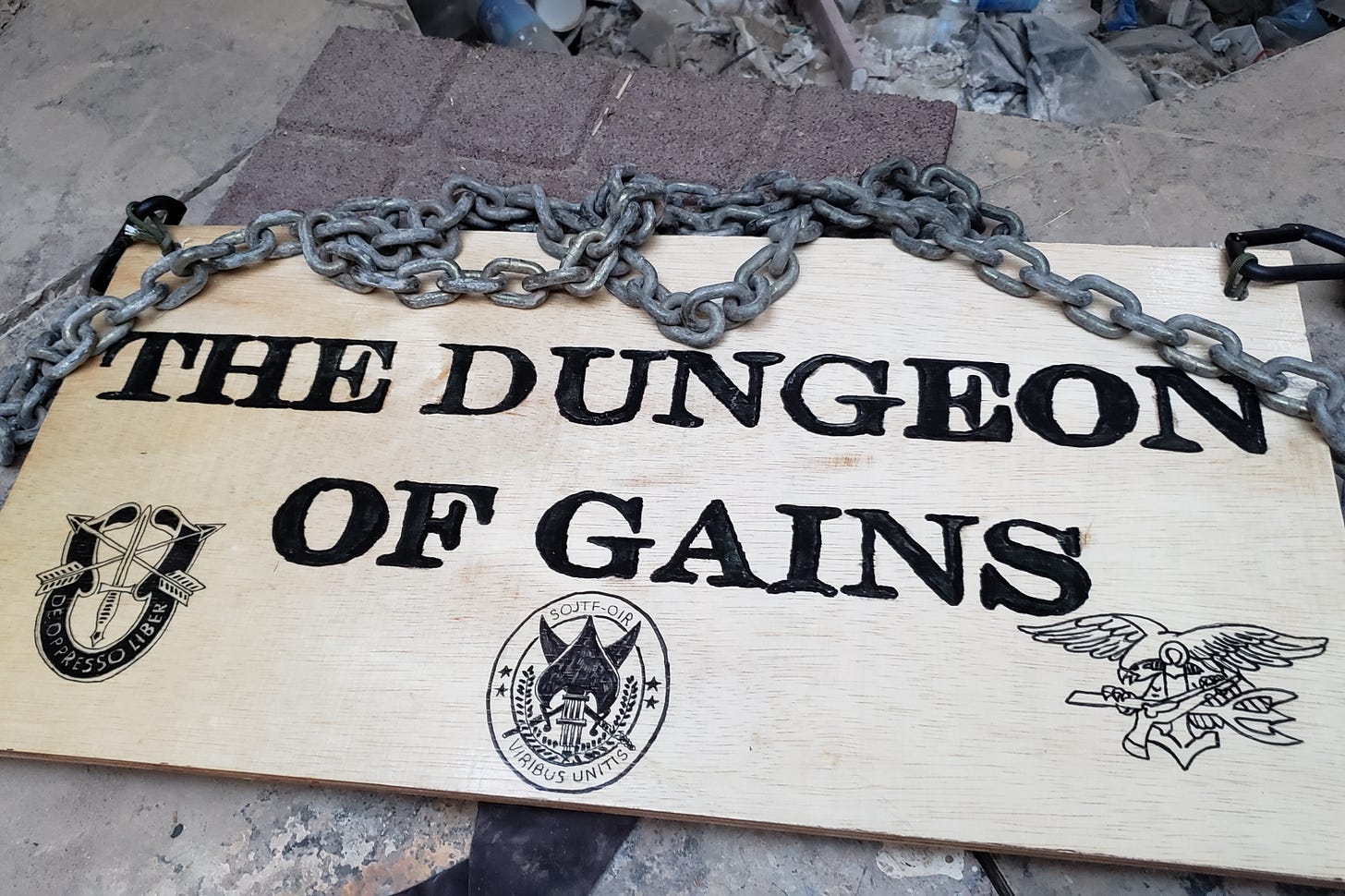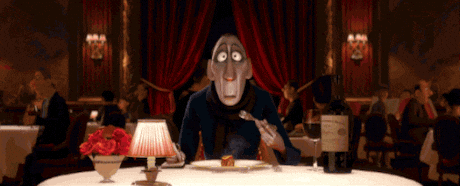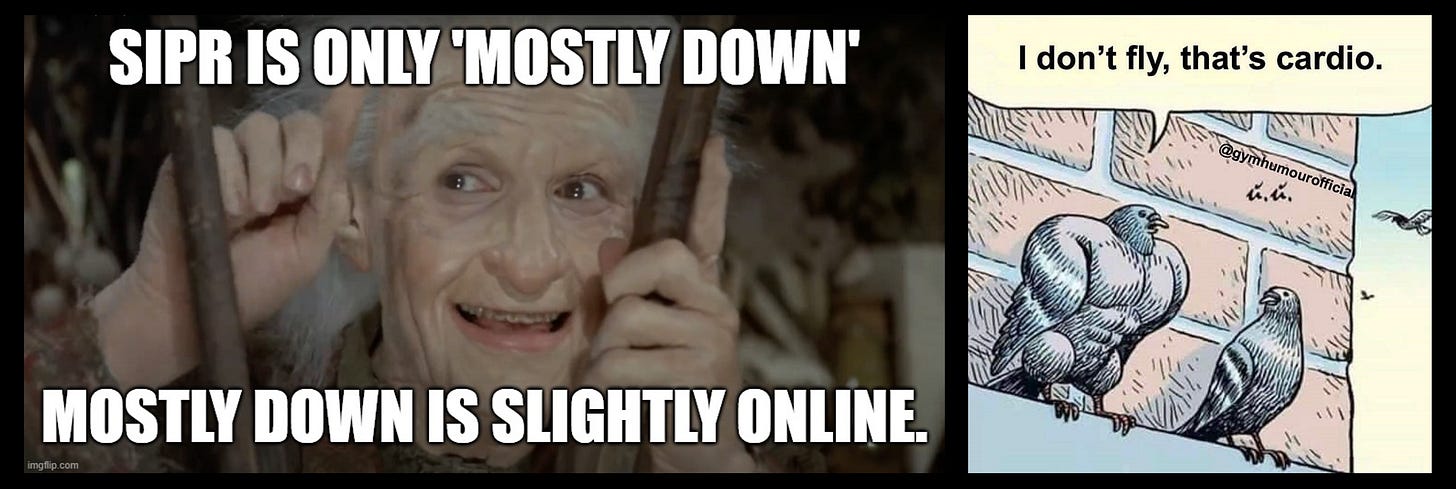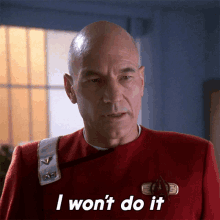
When I started as CHOPS in 2019, I was one month away from promoting to lieutenant colonel. I also already knew my follow-on assignment: taking command of 1-1 in Okinawa the following summer. That combination meant I took the reins of the JOC with a palpable ‘devil may care’ attitude.
JOCs are boiler-rooms already, with 20-30 people slogging away at shifts that are minimum 12 hours long, with most even longer. The baseline noise level in a JOC is just enough to induce stress even when you’re only sitting in one. And that’s before everything ramps up when combat is actually happening. When TICs start, the whole place turns up to 11.1
I can’t say there’s no doctrine or book on how to run a JOC, but I’ll admit I never read one. Regardless, I’m pretty confident not much of what follows would be in any manual Fort Leavenworth published.
Get Yourself A Big Ass Map
2You’d be surprised to hear just how many JOCs don’t have a map up. They might have a COP on one of the megawall screens, but I still stand by getting a giant paper map.
We were moving from the old JOC to the newly built one in the Blue Dome when I arrived, so I had some unmatched freedom for how I wanted to lay things out. One of the first changes I made was to get rid of a row of desks — more on that later — and build a false wall in the back of the JOC. When I showed up there wasn’t any real wall space to work with, which meant nowhere to hang up whiteboards or trackers or my big ass map.
I was getting a custom designed big ass map partly because when we went to move we found four giant panels of plexiglass that had been forgotten outside the old JOC. Just seeing them, baked in the sun brought me back to my first days as a lieutenant in Ar Ramadi.
I think my deep affection for maps traces back to then. Mech leaders all have map boards, but you have to make it yourself, often out of whatever you can scrounge up. Back then, scrounging up two sheets of plexiglass felt like discovering gold.
You customize your board and, in some cases, even the map. Then, like a good fighting position, you’re always tweaking it, finetuning it and making it better. It was hard to give mine up to the lieutenant that replaced me as I left Ramadi in 2005. He needed it more than me, but even today there’s a part of me that thinks, ‘Fuck that guy. I want my map’.
You need a map because you need to understand the terrain around you and where your units are fighting. We mounted our map on the wall, with four of those huge plexiglass panels turned vertically and mounted side by side. This gave us additional ability to write on the map, or just use the board as a place to write notes or draw ideas. There wasn’t a day that went by where I didn’t see one of the JOC members stand up and turn around to look at that big ass map and orient themselves.
The Coffee Corner
JOCs run on caffeine. The only place people spend more time than the coffee corner is their actual desk. So put some work into the space. Do the simple things right, like picking the right spot for it in the JOC, central but not in the way. Then stock it well with snacks and plenty of water bottles. Keep the kettle filled, and make sure everyone who uses it tops it up after, even the British Brigadier who thought such things were beneath him.
But ditch the negative signs you too typically find in JOCs about ‘food will be thrown away’, and ‘your mother doesn’t work here’. Swap the negativity for positive signs where you can. It may sound dumb, but JOC life can be very dour. You will watch people die in there. Don’t amplify that with more negativity. Find a way to make the signs positive, building teams and encouraging the behavior you want. Things like ‘Cleans: not just part of the Workout of the Week’. Speaking of which…
Make Time For Gains
I made it a rule that every member of the JOC was to work out once every day. That could be in whatever manner they wanted, but it would not be before or after a shift. JOC members worked out during their shift. The benefits of physical fitness both for health and coping with stress are detailed in possibly some of the most solid science we have. Gains are always good. But asking servicemembers to try and fit that in before or after a 14-hour shift is insulting; they likely won’t find time for it. We helped spark ideas by posting a ‘Workout of the Week’ (WoW) and encouraging soldiers to post their results.3
I made my way around the JOC floor throughout the day, asking people during their shift, ‘Did you get your gains yet?’ This policy of working out during a shift did not endear me to the SOJTF SEA, but then a lot of things I did pissed him off.4 Things like…
Start A Meme Wall
Dating back to antiquity, soldiers, marines, and sailors have always had warrior poets among them, people with wit to make the dark days endurable. Meme warriors are just the modern version of skalds.
We established a wall for memes, encouraging people to post their best. This does require some cultivation, because, yes, somebody is going to cross the line somewhere. I took on this job, both because I was responsible for everything and everyone in my JOC, but also because I wanted to keep people creatively engaged. This meant freeing up space for new memes when some got stale. That said, the truly great memes never got taken down, like these two:
I took this a step further and downloaded a lot of gifs that could be dropped into a group chat for a moment of levity when the floor needed one. At one point during the Turkish incursion, when the tensions were starting to wear, I dropped a particularly appropriate one into the chat, prompting my USMC fires officer to turn around and incredulously ask, ‘How are you finding time to download memes?!’
‘What do you think I was doing for the last three weeks? I was getting ready!’
Fix The Space
After getting our coffee corner up and running, I dedicated time to reworking the aesthetics of the JOC. One quick fix was putting a table and couches behind the megawall where service members could step away from their desk for a brief respite to eat, or just not be at their desk for 20 minutes. We also put a dry erase board over by the coffee stand and started writing problems we were having on it. As the members of the JOC cycled through to get their caffeine hits, watercooler socialization was already happening. A ton of key informal coordination happens in spaces like this, so we started tapping these random interactions for ideas on how to make the JOC run better. I stole this idea directly from Google, and saw it work for us in Iraq.
We also lucked into the best J6 I’ve ever worked with. Her shop came down and spent 24 hours reworking every single station. They got each individual user the setup they wanted between NIPR and SIPR, including screens, KVMs, connections to TVs, everything we could have asked for.5 Little touches like this can go a long way, streamlining everyone’s day so they aren’t hunting for buttons or plagued by old hardware.
Defend Your Space
Once you have your JOC running, you’ll need to defend it, because people are coming to try and upend it.
Our SEA was one of the first. I caught him early on harassing my JOC sergeant major with a list of changes he wanted to see. I quickly interrupted him, thanked him for his suggestions, and reminded him he had an office. Upstairs. On the quarterdeck.6
He made a few return visits, first to try and carve out working space for the command team on the JOC floor by tearing down the wall I’d just mounted my big ass map on. I instead volunteered to show him personally how he could see every tracker and drone feed from his desk. Upstairs. On the quarterdeck.
Later he was poking around and tried to corner my JOC sergeant major about catching people watching YouTube in the JOC. Again, I interrupted and explained to him, I was well aware. I even encouraged it.
JOCs aren’t always in a TIC; in fact, many days and nights they are downright boring. But you can’t run the JOC at full capacity all the time, and inventing work is a great way to kill morale. Instead, you need some reserve capacity on the JOC floor so when things do go up to eleven, the wheels don’t come off the bus.7 Learning something new on YouTube is far from the worst thing a soldier can do with their day.
I had to fight similar encroachments from the chief of staff, who kept insisting on using our JOC for award ceremonies and other morale events. I fought back, insisting the JOC is for operations not for presentations, but ultimately lost. However, when a phone rang in the middle of the ceremony and he yelled to silence the phones, I refused. We were a JOC, and we damn well couldn’t support our subordinate headquarters by ignoring their calls.
Unsurprisingly, I did not endear myself too much with the quarterdeck crowd. But when the ballistic missiles were flying in early January, they grabbed their kit and rifles and went to the roof for some reason. I was down in the JOC, with my team, managing the latest, but not the last, crisis. And I couldn’t have been happier.
Troops in Contact. When someone in the theater is in the middle of a firefight and the JOCs job is to get them every asset they need to make sure the combat goes our way.
We alternated between just writing your name on the board or including your score. The intent was to get maximum participation — which was also why WoWs were short and required no special skills, instead of long hero WoDs full of muscle-ups. As the personnel changed out, we switched to whichever got the most people to try the workout.
Senior Enlisted Advisor, the senior NCO in the organization.
Non-classified Internet Protocol (IP) Router Network is for trafficking and storing unclassified information up to CUI. Colored Green. Secret Internet Protocol Router Network is the DoD’s network for sharing classified information. Colored Red.
We embraced our Joint mission and referred to the command suite, which was upstairs, as the ‘quarterdeck’. Given my father and my uncle were both coastie chiefs, it’s probably not surprising I treated our JOC like a chief’s mess.
'The trouble is that average workloads never arrive; workloads come in peaks and valleys, with steep peaks and shallow valleys'. Colonel Anthony Wermuth, Military Review 1967. Hat tip to Zach Griffiths for the find.








“Not all Guns and Zeros”. ….. I like it. lol